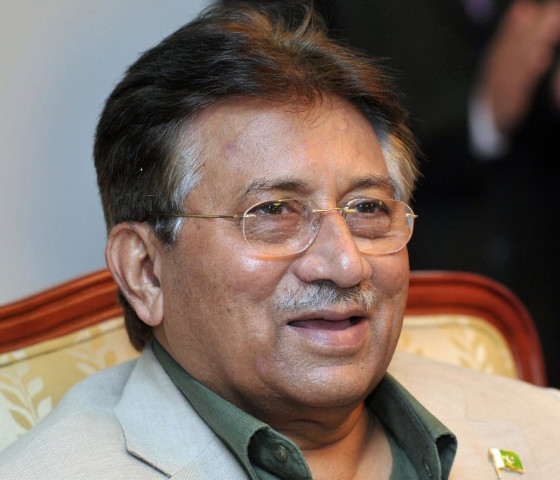Musharraf treason case: Court rules it can issue arrest warrants
Three-judge bench rejects pleas to reconsider summon.

Three-judge bench rejects pleas to reconsider summon.
The murky waters of a historic treason trial just got a little clearer.
A three-judge special bench formed to hear the matter ruled on Friday that the treason case against former military ruler Pervez Musharraf would in fact also be dealt with under the country’s Criminal Procedure Code.
Simply put, the matter is not only constitutional in nature and that the special court can issue arrest warrants if the former army chief and president doesn’t follow its orders. Musharraf’s legal team had earlier pleaded that the special court couldn’t work as a criminal court, Advocate Anwar Mansoor arguing that it was formed only to decide on the constitutional aspects of the case.

This ruling is also particularly important given that the court has summoned Musharraf for appearance before it on January 16 – something that the former army chief has failed to do on at least four occasions before, despite the court warning that it would pass ‘appropriate orders’ if he didn’t comply.
The order to appear next week had been challenged by the former president’s legal team on Friday – but the court rejected this appeal. The court stated that it “cannot revisit its order and the accused (Musharraf) has to appear before the court on January 16”.
Mansoor had filed a written application stating wherein that operational part of court’s January 9 order regarding Musharraf’s appearance before the court on January 16 be suspended because they have already challenged the very constitution of the special court.
“We don’t know whether or not this court actually exists since we believe that the notification issued by the federal government for the constitution of special court was illegal and the prime minister did not follow the lawful and constitutional procedure in the process of formulation of the special court as was required under Article 90 of the Constitution,” he maintained.

He added that their applications were already pending before the court including the transfer of this case to a military court.
Under Article 90 (2) of the Constitution, prosecutor Akram Sheikh said, the prime minister has the authority to act directly. “Challenging the final judgment of this court in the Supreme Court is the only available remedy,” he added.
Long way to go
Despite clarity on one key matter, the court warned that many questions remain to be cleared yet.
Justice Faisal Arab, who leads the bench that also includes Justices Yawar Ali and Tahira Safdar, observed that significant constitutional issues were involved in this trial and therefore it cannot be concluded within days or months.
“A person who introduced amendments in the Constitution is now before us for abrogating the same,” the bench pointed out while underscoring the importance of the case.
Talking to The Express Tribune after the hearing, Anwar Masroor said that Musharraf’s November 2007 action was unconstitutional but it was not a subversion of the Constitution. Article 140-A says local bodies elections will be held in 90 days but to date the provinces have not honoured this constitutional provision. This is an unconstitutional act but we cannot say it is subversion, Mansoor held.
Also, for the first time, media coverage of the treason trial came under scrutiny in the special court. Justice Arab pointed expressed concern regarding the coverage of the trial by a section of the media.
Published in The Express Tribune, January 11th, 2014.



















COMMENTS
Comments are moderated and generally will be posted if they are on-topic and not abusive.
For more information, please see our Comments FAQ